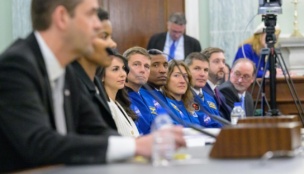NASA is pulling the plug on its experimental all-electric X-57 Maxwell aircraft before it ever hit the air, the agency announced on Friday. Officials cited safety concerns as the reason for the cancellation, but the decision comes at a time of overall belt-tightening at NASA, with budget pressures coming down the pike.
Electric plane: The goal of the X-57 program was to build a zero-carbon emissions aircraft. Development of the 14 electric motor aircraft had made significant progress over the years, and was nearing first flight.
- Despite ongoing efforts, the program was plagued by persistent technical setbacks. Ultimately, mechanical issues late in the life cycle sealed its fate.
While X-57 never achieved flight, its R&D will help inform future electric-propulsion-focused designs.
“While we prepare to finish this project later this year, I see a long list of achievements to celebrate and an industry that’s better today because of their work,” said Brad Flick, head of NASA’s Armstrong Flight Research Center.
Green pushback: The cut comes at a time when NASA faces increased congressional scrutiny regarding budget allocations and whether climate technology and sustainability should fall within NASA’s purview.
- The White House’s FY24 NASA request includes a $500M earmark for ‘Green Aviation’ to help the aviation community achieve net-zero carbon emissions by 2050.
Cost pushback: NASA also faces criticism over its massive budget overruns across multiple programs. Last month, NASA’s Inspector General issued a scathing report on $6B of Artemis SLS engine and booster cost overruns.
As the federal debt limit deal threatens to put downward pressure on NASA’s budget, internally, officials are already exploring ways to streamline its budget. With the Artemis program likely to be prioritized, programs such as green aviation and the Mars sample return program are at risk of being impacted.
Mars sample delays: The Mars sample return program aims to collect samples from Mars and bring them back to Earth for detailed analysis. Program leaders recently briefed NASA officials last week, revealing that projected costs for the program have doubled from $4.4B to nearly $9B, according to a report from Ars Technica.
To limit budgetary impacts, NASA officials may look to slim down the Mars sample program’s technical scope, enlist commercial partners, and slow-roll the program, pushing back the mission to after 2030.




